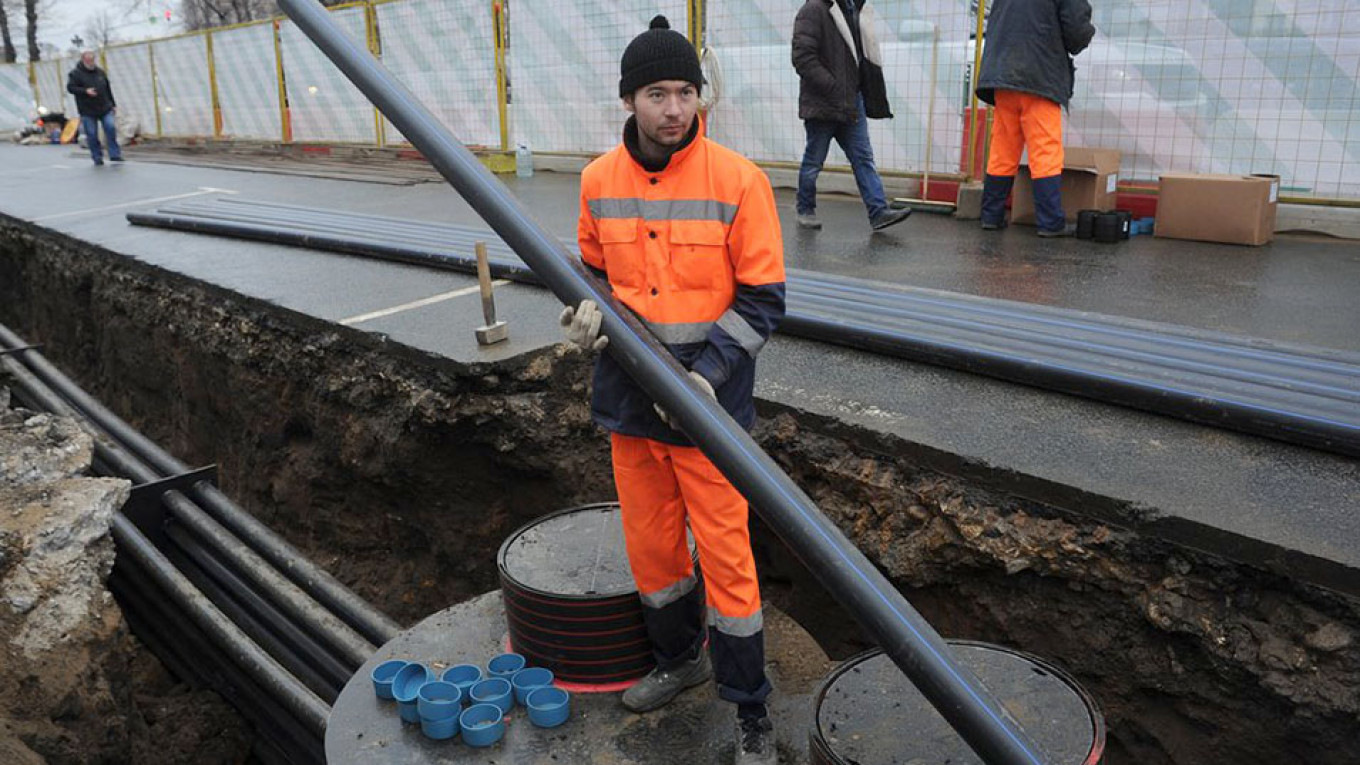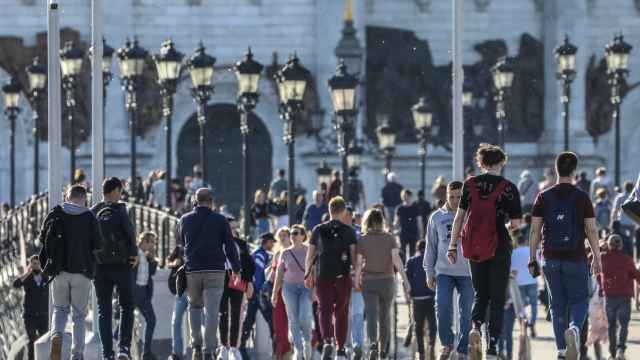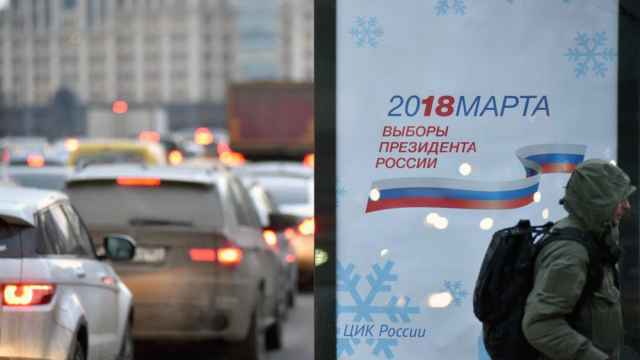Anti-migrant attitudes have risen for a second consecutive year in Russia, according to a new independent survey’s results that experts link to the country’s economic woes.
The Levada Center’s findings come as research has shown a decade-high surge in migration to Russia in the early months of 2019. At the same time, real incomes continue to stagnate in the country after five years of Western sanctions and falling oil prices.
Seventy-two percent of respondents said Russia should limit migration, Levada said Wednesday, up from both 2018 and 2017.
“Poverty worries the population more than two to three years ago, so [anti-migrant] attitudes are aggravated through the search for scapegoats,” Levada sociologist Karina Pipiya was quoted as saying by the Vedomosti business daily.
The same percentage of respondents (72%) said they would like to limit labor migration in particular, and 64% said they felt that jobs typically held by migrants could be done by their relatives or other people they know.
“When people start to ‘think politically,’ threats appear in their heads and they become more xenophobic,” Alexander Verkhovsky, the head of the SOVA Center which tracks nationalism and xenophobia in Russia, told Vedomosti.
The survey said that half of respondents supported the “Russia for Russians” slogan, up from 19% last year and 10% in 2017.
Rising negativity was most pronounced toward the Roma, Chinese and Vietnamese ethnic groups, according to Levada’s results, followed by those who come from ex-Soviet Central Asian states and the North Caucasus.
On Wednesday, the head of the Primorye region in Siberia signed a decree banning foreign workers from public transport jobs. Earlier this year, the Siberian city of Yakutsk was rocked by anti-migrant protests sparked by allegations that Central Asian migrants raped a local woman.
Levada conducted its survey among 1,608 respondents over the age of 18 across Russia on Aug. 22-29.
A Message from The Moscow Times:
Dear readers,
We are facing unprecedented challenges. Russia's Prosecutor General's Office has designated The Moscow Times as an "undesirable" organization, criminalizing our work and putting our staff at risk of prosecution. This follows our earlier unjust labeling as a "foreign agent."
These actions are direct attempts to silence independent journalism in Russia. The authorities claim our work "discredits the decisions of the Russian leadership." We see things differently: we strive to provide accurate, unbiased reporting on Russia.
We, the journalists of The Moscow Times, refuse to be silenced. But to continue our work, we need your help.
Your support, no matter how small, makes a world of difference. If you can, please support us monthly starting from just $2. It's quick to set up, and every contribution makes a significant impact.
By supporting The Moscow Times, you're defending open, independent journalism in the face of repression. Thank you for standing with us.
Remind me later.






